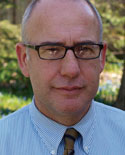- Home
- About Us
- The Team / Contact Us
- Books and Resources
- Privacy Policy
- Nonprofit Employer of Choice Award

 Over the almost three decades of working in planned giving, I’ve had the chance to speak with thousands of organizations across the country about their planned giving programs. During that time, I’ve had the chance to understand some of the challenges that our colleagues operating programs are facing. In retrospect, when I was lead on programs on the organization side, I had the same challenges.
Over the almost three decades of working in planned giving, I’ve had the chance to speak with thousands of organizations across the country about their planned giving programs. During that time, I’ve had the chance to understand some of the challenges that our colleagues operating programs are facing. In retrospect, when I was lead on programs on the organization side, I had the same challenges.
Most conversations have the same starting point. A fundraising professional is interested and, at times, even excited, about advancing the planned giving program. In some cases, their organization also expressed interest in supporting this vital revenue area—the third program of fundraising—to fund its mission for the long term. It all seems very positive, until there is a disconnect. Even with widespread excitement about a program and understanding of the positive opportunity, the organization does not move forward in creating or enhancing their program. Even with a consulting or marketing firm—they just don’t focus on planned giving. It was puzzling.
I recall a conversation in the early 2000s that I had with Dr. Edward Pearce. Dr. Pearce was then Director, Gift Planning at Queen’s University. He was also the author of both volumes of Planned Giving: Making it Happen, the ultimate Canadian manual on planned giving and one of the founders of the Canadian Association of Gift Planners. In short, Dr. Pearce was the leader in planned giving in Canada at the time. When I mentioned the “disconnect” to him, he asked me how many truly proactive planned giving programs I thought there were in Canada. When I hesitated, he responded to his own question with the figure of perhaps one hundred.
I was confused. With more than 80,000 charities in Canada, how could it be that such a small number had proactive programs? Then, Dr. Pearce took me through the elements of a truly proactive program, and I realized that he was right. There weren’t many organizations operating in-depth, thoughtful, and fully realized planned giving. Marketing activities were happening in many organizations. True engagement was lacking.
The survey
That conversation with Dr. Pearce stuck with me, but my mind needed more. So finally, many years later, my co-founder of PGgrowth, Jim Hilborn and I decided to investigate this further. We conducted a survey of hundreds of organizations across Canada. The results were very interesting.
What a huge opportunity for charities in Canada! Again, it all seemed very encouraging—until you see some of the other results.
From a business point of view, that didn’t make sense.
It was the all-too-common “off the side of your desk” planned giving program.
This was taking place even though 60% of the organizations that responded had an average planned gift of more than $25,000—a number considered a “major” gift in almost every charity in Canada.
Even though there was a considerable opportunity for many organizations, there was still no strategic investment or expansion of programs. Why?
Respondents let us know.
Nearly half felt that senior leadership—including the Board—lacked knowledge about what a proactive planned giving program looked like and how it could help the future mission of the organization. The other half indicated that the investment decisions that were made led to misaligned tactics and staffing.
For many of you, these facts are academic. You know from your own experience that you are being asked to do more with less. That is a fact of life in the charitable sector. It is, of course, cold comfort to see that this is the fact across the sector. I often tell those we talk to that they are part of the rule rather than the exception.
The other fact is (and this also doesn’t make them feel any better) that their donors are making planned gifts at a greater rate, just not at the charity at which the professional is currently working. Competition is increasing. It is not only from other charities but also from a growing community foundation movement, and of course financial services companies such as banks, investment firms, etc. (Consider the recent rapid growth of donor advised funds.)
So, what does this all mean?
Part 2 of "Create a Proactive Planned Giving Program to Sustain Your Organization" will continue in the May 25 issue of Hilborn Charity eNews.
Ed Sluga, CFRE is one of Canada’s most experienced planned giving professionals and is also co-founder of PGgrowth. Ed is a noted speaker, the co-author with Peter Barrow of Worthy and Prepared ,host of the PGgrowth Planned Giving Podcast, Professor of Major Giving and Planned Giving with the Humber College Fundraising Management Program and a regular presenter of the AFP Fundraising Fundamentals Course. ed@pggrowth.com